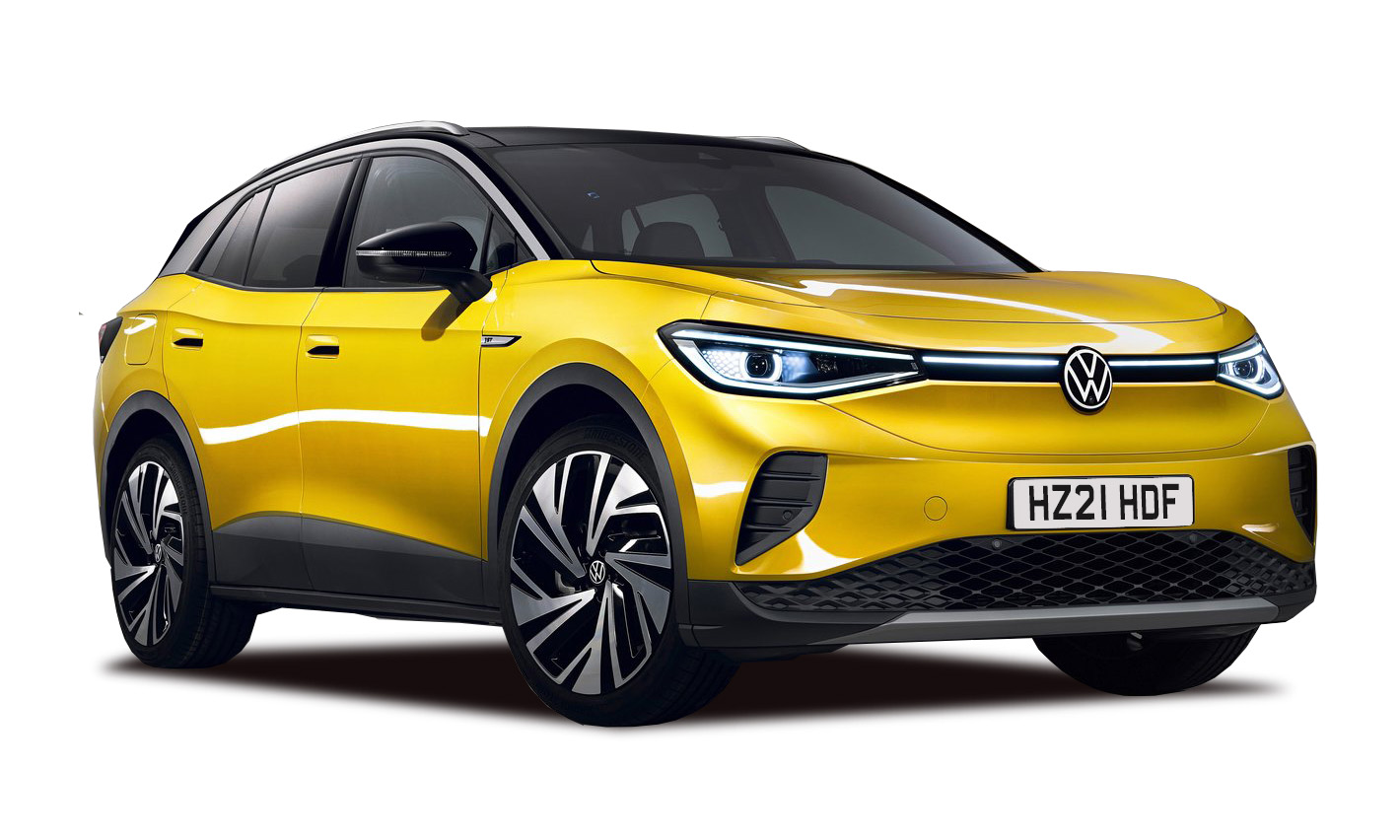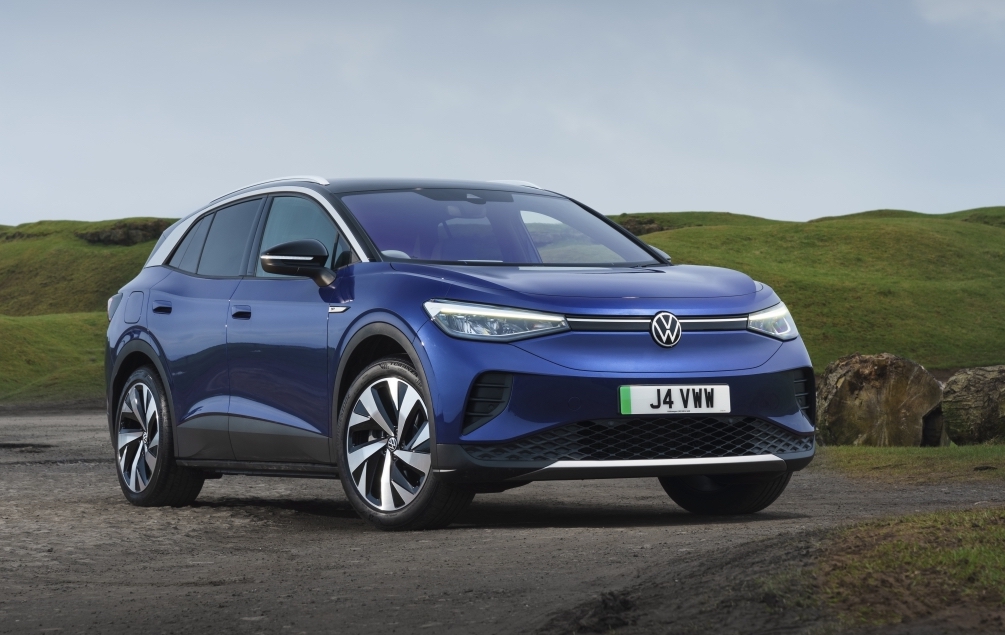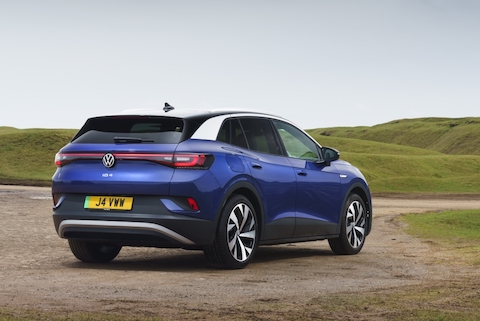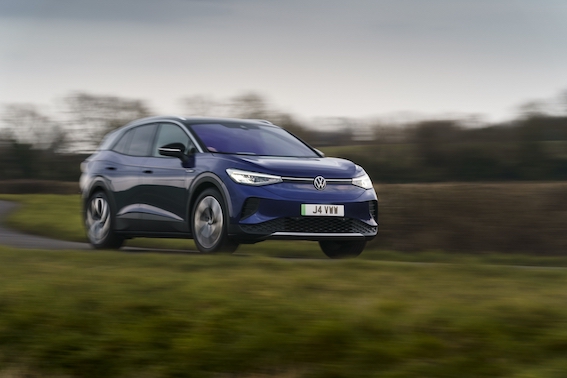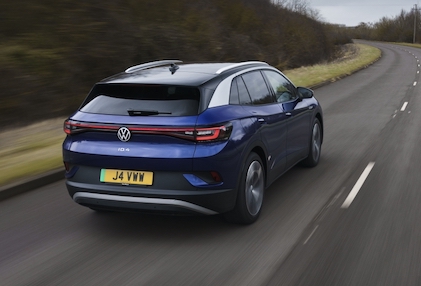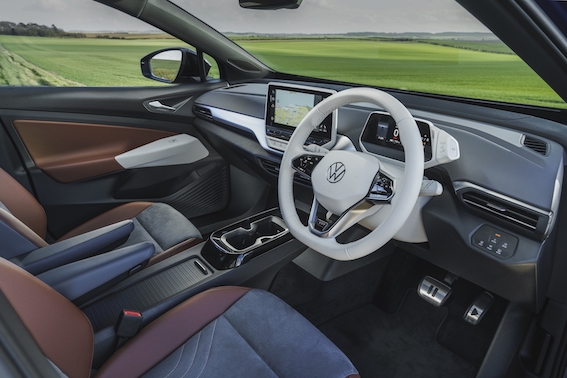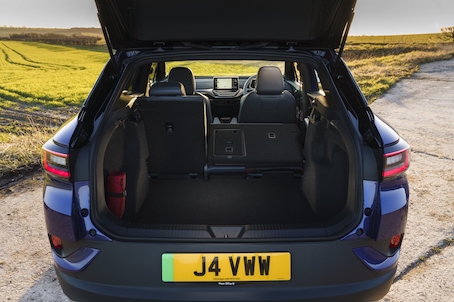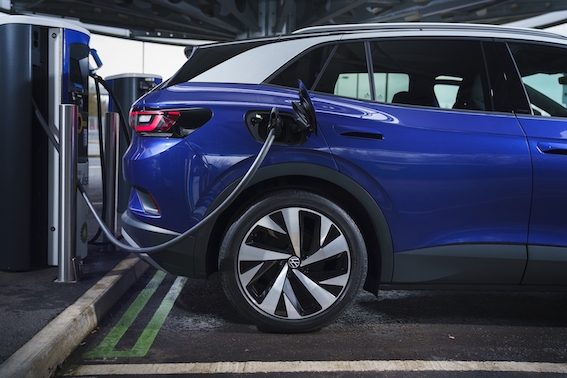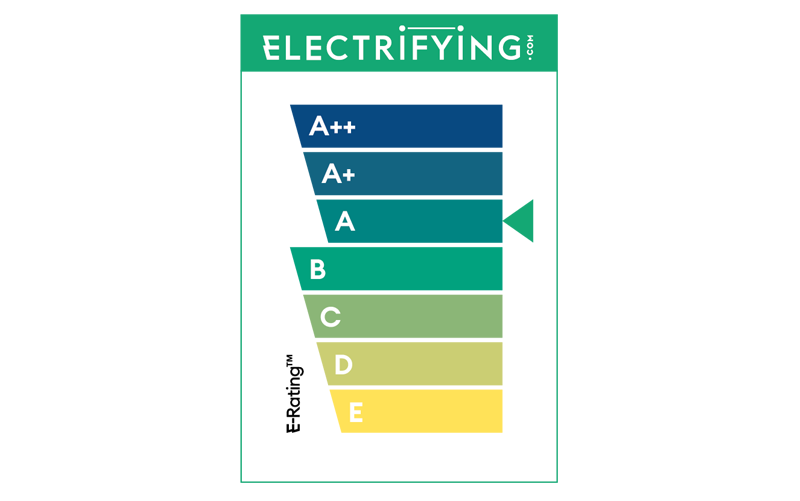Pricing
Having launched with a one-off ID.4 First limited edition in early 2021, the ID.4 range has grown quickly. There are now six trim grades; Life, Style, Family, Max, GTX and GTX Max which can be specified with two battery options; 52kWh and 77kWh. Be careful though as not all trim grades come with the option of the smaller – and cheaper – 52kWh battery.
The line-up now starts with the Life Pure 52kWh at £34,995 and it comes with pretty much everything you'd need – LED headlights, a 10-inch infotainment screen with sat-nav, Android Auto and wireless Apple CarPlay, climate control, heated seats along with a heated steering wheel and windscreen, for example.
The larger 77kWh battery model in Life spec starts from £42,520 and this would be our choice as it gets the maximum 319-mile range and gets generous kit levels despite it being the entry-level model.
The Family and Max models cost more, while the GTX and GTX Max versions top the range. However, you really have to pay for that extra performance because these versions cost £49,025 and £55,380 respectively. The ID.4 isn't the cheapest family electric SUV on sale but nor is it the most expensive. You could say it sit slap bang in the middle which makes it decent value for money.
Running costs
Not only is the ID.4 decent value when buying, it shouldn't cost too much to run either. A full-charge overnight will range from around £7 to £10, depending on your energy tariff, which is buttons compared to the equivalent petrol-engined Volkswagen Tiguan.The ID.4 doesn't need annual services, instead Volkswagen recommends a check-up every two years. The warranty is a little on the stingy side though; Kia offers seven years on both the e-Niro and Soul EV, but they are are smaller SUVs.












